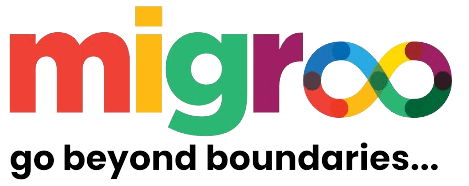Learning a new language is an enriching journey, and French, often regarded as the language of love and culture, offers a unique blend of history, literature, and practical use in global communication. Whether you are a beginner contemplating your first French class or an intermediate learner seeking to enhance your skills, understanding the nuances of the French language can make your learning experience more enjoyable and effective. Here are some essential things to know about learning French, along with tips to navigate the intricacies of this beautiful language.
1. The Importance of French
Global Significance
French is not just a language spoken in France; it is an official language in 29 countries and one of the six official languages of the United Nations. With over 300 million speakers worldwide, French is particularly prominent in Europe, Africa, and parts of North America and the Caribbean. Learning French can open doors to career opportunities in international relations, diplomacy, tourism, and global business.
Cultural Richness
French culture is celebrated through its literature, philosophy, cinema, and art. By learning the language, you gain access to a wealth of cultural treasures—from the works of Victor Hugo and Marcel Proust to the films of François Truffaut and Agnès Varda. Understanding the language allows you to appreciate these cultural products in their original context.
2. The Basics of French Language Structure
Gendered Nouns
One of the first challenges learners encounter is the concept of gendered nouns. In French, all nouns are classified as either masculine or feminine. For example, “le livre” (the book) is masculine, while “la table” (the table) is feminine. This distinction affects not just the nouns themselves but also the adjectives and articles that accompany them. It’s essential to learn the gender of nouns early on, as this will aid in sentence construction.
Pronunciation Challenges
French pronunciation can be tricky for English speakers due to its nasal sounds and unique vowel combinations. The French “r,” for instance, is produced differently than in English, requiring some practice to master. Listening to native speakers, whether through music, podcasts, or films, can greatly aid in developing an ear for the sounds of the language.
Verb Conjugations
French verbs are categorized into three main groups, each with its own set of conjugation rules: -er, -ir, and -re verbs. Regular verbs follow predictable patterns, but many common verbs are irregular and require memorization. Understanding verb conjugations is crucial for communicating effectively in different tenses, including the present, past, and future.
3. Effective Learning Strategies
Immersive Learning
Immersion is one of the most effective methods for language acquisition. Surround yourself with the French language as much as possible. This could involve watching French films, listening to French music, or following French-speaking social media accounts. If feasible, consider spending time in a French-speaking country to experience the language in everyday contexts.
Consistent Practice
Regular practice is key to language retention. Aim for short, consistent study sessions rather than long, infrequent ones. Daily practice, even for 15-30 minutes, can lead to significant progress over time. Use language learning apps, flashcards, and online exercises to reinforce vocabulary and grammar.
Language Exchange
Finding a language partner can enhance your speaking skills and boost your confidence. Websites like Tandem and HelloTalk connect language learners with native speakers. You can practice conversational skills while helping your partner with their English, creating a mutually beneficial learning environment.
4. Understanding French Culture
The Role of Culture in Language Learning
Language is deeply intertwined with culture. To fully grasp the nuances of French, it’s essential to engage with French culture. This includes understanding social norms, expressions, and historical context. Cultural references often come up in conversations, and being familiar with them can enhance your comprehension and fluency.
French Cuisine
Food is a significant aspect of French culture. Learning vocabulary related to cuisine not only enhances your language skills but also enriches your cultural understanding. Familiarize yourself with regional dishes, wine terminology, and restaurant etiquette. This knowledge can be particularly useful when dining in French restaurants or traveling in French-speaking regions.
5. Resources for Learning French
Online Courses and Apps
Numerous online platforms offer structured courses for French learners. Websites like Duolingo, Babbel, and Rosetta Stone provide interactive lessons that cater to various skill levels. YouTube is also a valuable resource, with countless channels dedicated to teaching French through engaging videos.
Books and Literature
Reading French literature, even at a beginner level, can greatly enhance your vocabulary and comprehension skills. Start with children’s books or simplified novels and gradually work your way up to more complex texts. Additionally, bilingual books can be a helpful tool for understanding context while learning new vocabulary.
Podcasts and Audiobooks
Listening to French podcasts or audiobooks is a fantastic way to improve your listening skills. Look for content that matches your interests—be it history, culture, or storytelling. The more you expose yourself to the spoken language, the more comfortable you will become with its rhythms and patterns.
6. Common Pitfalls to Avoid
Overthinking Grammar
While grammar is important, it’s crucial not to let it hinder your speaking practice. Many learners fall into the trap of overthinking grammatical structures, which can lead to hesitancy in conversation. Remember that making mistakes is part of the learning process. Focus on communication first, and refine your grammar as you progress.
Neglecting Speaking Practice
Language learning is often heavily focused on reading and writing, but speaking is equally important. Don’t shy away from speaking opportunities, whether with language partners or in a classroom setting. The more you practice speaking, the more confident you will become.
7. Celebrating Progress
Set Achievable Goals
Setting small, achievable goals can keep you motivated throughout your language-learning journey. Whether it’s mastering a set of vocabulary words, holding a short conversation, or completing a specific lesson, celebrating these milestones can provide a sense of accomplishment.
Track Your Progress
Keeping a journal of your learning experiences can help you reflect on your progress. Write down new vocabulary, interesting phrases, and your thoughts on the language and culture. Over time, you’ll be able to look back and see how far you’ve come.
Conclusion
Learning French is a rewarding endeavor that opens up a world of opportunities, both personally and professionally. By understanding the language’s structure, immersing yourself in the culture, and utilizing effective learning strategies, you can navigate the challenges of French language learning with confidence. Embrace the journey, celebrate your progress, and soon enough, you’ll find yourself conversing fluently in one of the world’s most beautiful languages. Whether you aim to travel, connect with French-speaking friends, or appreciate French literature and cinema, your efforts will undoubtedly enrich your life in countless ways. Bon courage!




